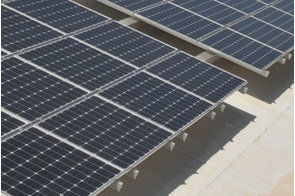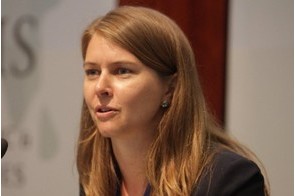StanChart opts out of financing for controversial $5b Ugandan oil pipeline

Summary
The project, which still needs a $2-3 billion project finance loan in order to proceed, has lost the backing of nine out of TotalEnergies’ 10 largest financiers.
Standard Chartered Plc (StanChart) has announced that it will not finance the East African Crude Oil Pipeline (EACOP) project. The decision, which follows mounting pressure from the StopEACOP campaign, reverses the bank’s previous decision that it was undertaking due diligence on financing the $5 billion project.
In response to public pressure, the London-based bank clarified to Bloomberg on Friday that it is not involved in the project’s financing, StopEACOP said in a statement it sent to Financial Nigeria today.
Though construction has not started, the EACOP project, being led by French oil major TotalEnergies, has already resulted in scores of project-affected persons and frontline activists suffering violence, intimidation, and land use restrictions, the campaigner said, adding that the compensatory processes have been unfair, leading many communities impacted to suffer the unfair loss of their land and other income-generating streams due to the pipeline's development, according to the activist group. It added that local communities and activists have also raised concerns about the project's potential impact on the environment and the well-being of those who live in the pipeline's path, apart from the project contributing to significant increase in carbon emissions and the apparent threat to local wildlife populations, including protected and sensitive ecosystems.
In reaching this decision, Standard Chartered becomes the 25th major bank to have publicly distanced itself from the EACOP. The project, which still needs a $2-3 billion project finance loan in order to proceed, has lost the backing of nine out of TotalEnergies’ 10 largest financiers.
Standard Chartered is the current chair of the Equator Principles, the banking sector’s rules for assessing environmental and social risk when financing large projects, with which the EACOP project sponsors have committed to comply. The bank’s decision to withdraw after assessing the project against the Equator Principles clearly conveys that the EACOP and associated oil projects fail to live up to the required international standards.
The StopEACOP campaign says it is determined to push other firms considering getting involved in this controversial EACOP project, in particular, the three banks acting as financial advisers to the project: South Africa’s Standard Bank, Japan’s Sumitomo Mitsui Banking Corporation (SMBC), and the Industrial and Commercial Bank of China (ICBC), as well as the US insurance broker Marsh, to follow Standard Chartered in pulling out of the project and instead increase their investment in genuine climate solutions.
Rafela Fitzhugh is one of the Extinction Rebellion group which has been protesting outside Standard Chartered’s London office every week since last October with four demands. One of their demands was for Standard Chartered to rule out financing EACOP.
“This is fantastic news,” said Fitzhugh. “We are delighted that Standard Chartered has joined the other 24 banks and 23 insurance companies in refusing to support EACOP: a project that, if it ever happens, would be disastrous for the climate. Hopefully this will discourage other banks from risking their reputation by getting involved with EACOP.”
According to Zaki Mamdoo, the StopEACOP Campaign Coordinator, Standard Chartered's decision to refuse to finance the EACOP project is a significant victory for communities impacted by this pipeline and for climate activists worldwide who have been calling for an end to fossil fuel projects that threaten people, nature, and the climate. He said the decision by the bank should signal to other financial institutions, who are on the fence about whether to support the project, to act in the interest of the people of Uganda and Tanzania by taking a firm stand against EACOP.
Related
-
Renewable energy will power future growth of cities – IRENA
The proliferation of renewable energy is a means to achieve a sustainable urban future and common prosperity.
-
Africa solar investor Nithio secures $3m investment from Schmidt Foundation
The AI-enabled solar energy vehicle plans to use the investment to expand access to renewable energy products for over ...
-
AfDB provides $24mn to Rwanda for regional hydropower project
The project will increase Rwanda’s clean energy generation capacity by about 50 megawatts.










